The day I packed my bags and went to enroll in the Teacher Training College, my father said, "Try your best in your studies, and later you can teach, teach the younger generation." I understood that I had six younger siblings, elderly parents, and I was the eldest, therefore I had a great responsibility. I went to school with peace of mind, but as the old saying goes, "man proposes, God disposes," after graduating with honors, I was called up for military service. At that time, I thought that three years of military service would make me even more secure as a teacher. But then the destructive war waged by the American imperialists spread throughout the country, and the military service system was abolished. Soldiers could only rest assured and march forward until the day of complete victory.
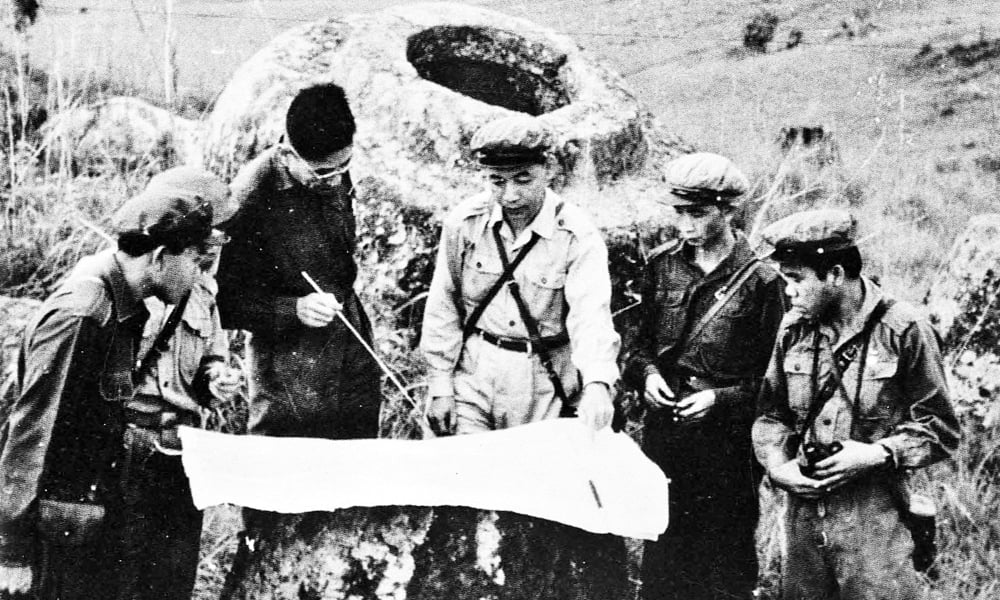 |
The Lao Liberation Army Command and Vietnamese military experts discuss operational plans for the Plain of Jars - Xieng Khouang campaign in 1972. (Photo courtesy of VNA) |
During the fierce years of war, soldiers on the battlefield not only lacked food and clothing, but also information. The entire company was given an Oriong Tong radio by their superiors, which was kept and managed by the political commissar. Soldiers rarely had the opportunity to gather to listen to the radio. All information was recorded by the political commissar during the radio's slow reading sessions and disseminated to the soldiers. Newspapers like Nhan Dan and Quan Doi Nhan Dan reached the soldiers at a slow pace, sometimes only once a quarter. Responding to the information needs of officers and soldiers on the battlefield, from the late 1960s, the General Political Department allowed the Command Headquarters and fronts to publish a newspaper to replace the bulletins.
The Command of the Volunteer Army fighting to assist our Laotian allies at that time was allowed to publish the newspaper "Western Soldier". The birth of the newspaper marked a turning point in my life. From my combat unit, I received a transfer order to the Political Department. At the very first meeting, Colonel Le Linh, Deputy Political Commissar and Head of the Political Department, assigned me the task of going to a new recruit unit to recruit 10 soldiers with a certain level of education, sending them to Hanoi to learn newspaper printing, and I went to the People's Army Newspaper to learn editorial organization and build a printing workshop in the battlefield to publish the "Western Soldier" newspaper. I was very worried about the assignment; my superiors told me I had to get the first issue published within six months. From childhood to adulthood, I only knew how to read newspapers; I had no idea how to produce one.
| The newspaper "Western Soldier" did not exist for long, but it made a small contribution alongside the Vietnamese volunteer army, helping Laos and protecting the Ho Chi Minh Trail until the victory on April 30, 1975, and the reunification of the country. |
After recruiting enough personnel, I took my comrades to Hanoi to meet with the leaders of the Army Printing Factory. The Board of Directors, understanding my situation, assigned experts to help develop a training plan for the workers and create a project for a printing house in the battlefield. Working with the Publishing Management Department of the General Political Department, I received dedicated assistance from the comrades and returned to the People's Army Newspaper to learn the entire process, from the editorial office to printing and distribution. The final step was purchasing the machines, lead type, and some accessories. According to the budget, the financial representative of the Command gave me 6,000 dong, which I kept in my security briefcase. After three months of training and preparing the machines, lead type, and other equipment, the printing workshop was completed and began its march to the battlefield.
While we were still on our land, we traveled by car. Upon reaching the border, the printing press was dismantled, and four mechanics shared the task of carrying it. The typesetting team consisted of six people, each carrying a 25 kg type box on their backs in backpacks. The remaining type boxes and printing paper and ink were transported by 10 civilian laborers. Despite the hardships and difficulties, in exactly five months, the first issue of the "Western Front Soldiers" newspaper was published and delivered to officers and soldiers throughout the front lines. At that time, Mr. Hoang Tong was the Editor-in-Chief, and the reporters included Mr. Pham Dinh Trong (pen name Khanh Tuong), Mr. Trong Thuy, and myself, who worked both as news reporters and in charge of printing. The printing press was located in a cave with the Political Department, operating by oil lamps. After work, everyone's faces were smudged with soot as they emerged from the cave entrance.
Back then, calling the newspaper's editorial office was just to get your name on the military telephone directory; in reality, there were only four people: the Editor-in-Chief, two main reporters, and me, a trainee reporter who also handled publishing. The newspaper came out once a week, four pages long, the same size as the Bac Giang Newspaper is now. But during the dry season campaign, sometimes the newspaper came out twice a week to meet the directives of the Command Headquarters. Once, the newspaper had two pages extra: page one contained an editorial and some news about victories on the battlefields, and page two printed the full text of the campaign's guiding slogans and motivational messages, encouraging officers and soldiers to fight and win decisively. The newspaper was delivered to the unit by military post right before the fighting began.
As a newspaper of the volunteer army serving on the international front in Laos, the newspaper also highlighted the exemplary combat coordination between Vietnamese troops and the Laotian liberation army, praising the solidarity of Vietnamese soldiers and the people of the Laotian ethnic groups in the resistance war against American imperialism and its puppets, liberating the fraternal country of Laos. The newspaper "Western Soldier" was born during the fierce war in Laos. The newspaper accompanied the volunteer army to the day the Laotian revolution achieved complete victory.
Source: https://baobacgiang.vn/lam-bao-o-chien-truong-lao-postid420424.bbg



![[Photo] Prime Minister Pham Minh Chinh receives Canadian Minister of International Development Randeep Sarai](/_next/image?url=https%3A%2F%2Fvphoto.vietnam.vn%2Fthumb%2F1200x675%2Fvietnam%2Fresource%2FIMAGE%2F2026%2F01%2F06%2F1767708661052_image123-3433-jpg.webp&w=3840&q=75)


![[Image] Fifth meeting of the Steering Committee for National Projects in the Railway Sector](/_next/image?url=https%3A%2F%2Fvphoto.vietnam.vn%2Fthumb%2F1200x675%2Fvietnam%2Fresource%2FIMAGE%2F2026%2F01%2F06%2F1767712857541_ndo_br_dsc-0581-jpg.webp&w=3840&q=75)


![[Photo] Party and State leaders attending the ceremony commemorating the 80th anniversary of the first general election to elect the Vietnamese National Assembly.](https://vphoto.vietnam.vn/thumb/402x226/vietnam/resource/IMAGE/2026/01/06/1767667837484_ndo_br_bnd-2975-jpg.webp)



![[Podcast] Coach Mai Duc Chung resigns from his position as head coach of the Vietnamese women's national team.](https://vphoto.vietnam.vn/thumb/402x226/vietnam/resource/IMAGE/2025/12/23/1766467952394_hnm-1cdn-vn-thumbs-540x360-2025-12-13-_media-cdn-v2-laodong-vn-storage-newsportal-2025-12-13-1624798-_mai-duc-chung-1.jpeg)





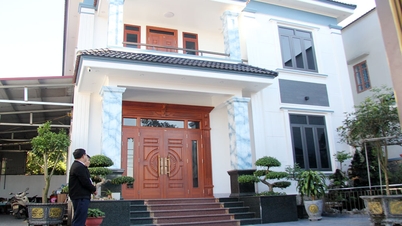
















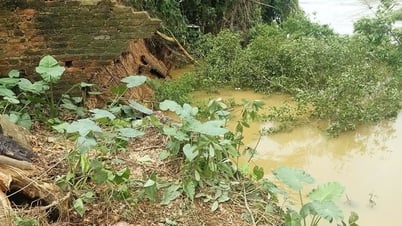
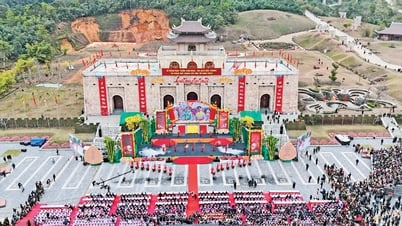
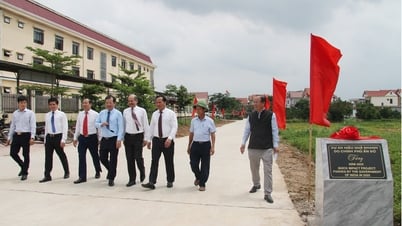
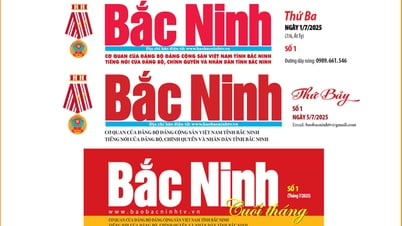
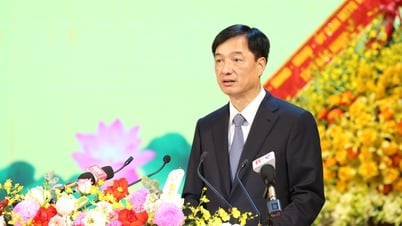
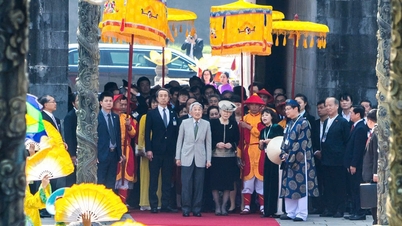









































































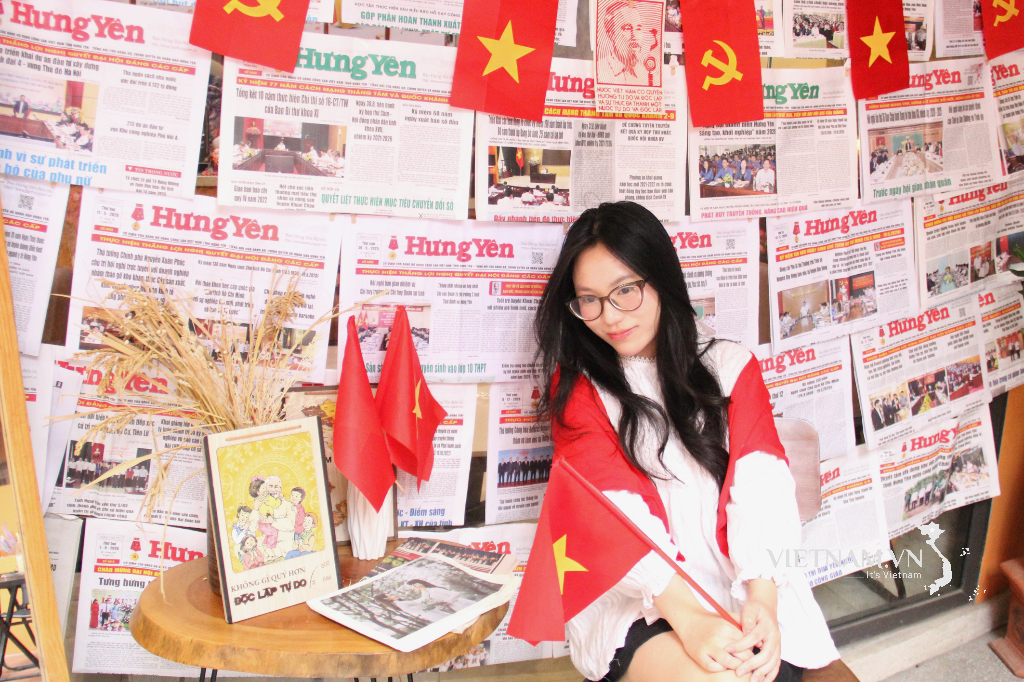
Comment (0)